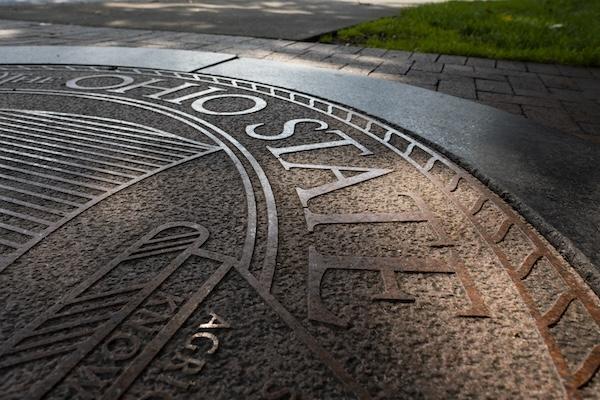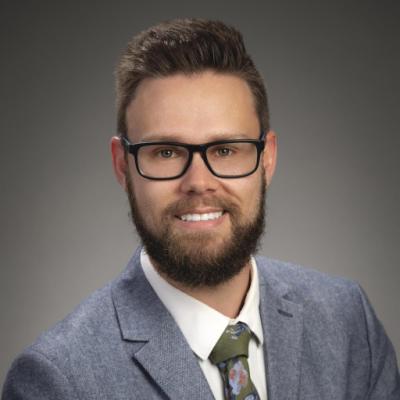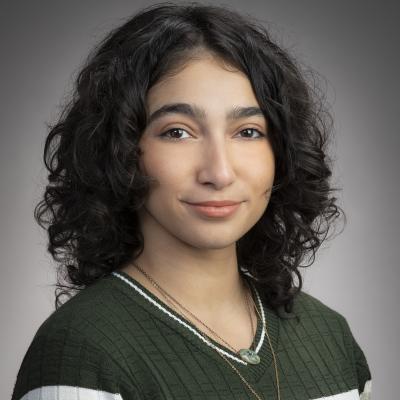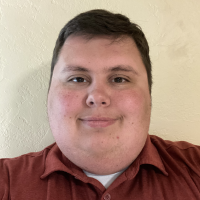Arts and Sciences alumni lead the way in suicide prevention

This story contains references to suicide and mental health. If you are thinking of harming yourself or if you are worried about someone else and need advice about what to do, call or text the National Suicide Prevention Lifeline at 988 or reach the Crisis Text Line by texting 4HOPE to 741741. Students can also reach out to Ohio State’s Suicide Prevention Program at suicideprevention.osu.edu.
Alumni from the College of Arts and Sciences are spreading the message about suicide prevention and mental health as part of their roles with the Ohio Suicide Prevention Foundation (OSPF), a nonprofit organization dedicated to preventing suicide.
In Ohio, approximately five people die by suicide every day, and one in five Ohioans struggles with mental health or substance abuse disorders, according to OSPF. These issues hit close to home for Austin Lucas, program director for OSPF, who graduated from Ohio State in 2017 with a bachelor’s degree in psychology.

“I have a few family members that suffer from severe mental illness,” he said. “Growing up and observing how that affected my family, how that affected me, I always had a soft spot for wanting to help folks who were struggling with either a mental health condition or suicidal thoughts.”
He first learned about OSPF at a career fair during his senior year at Ohio State. Now, Lucas manages suicide prevention programming, training, events, education and resources for federal, state and foundation grants for OSPF, and he credits his psychology coursework at Ohio State with helping to prepare him for his career.
“I learned a lot about stigma surrounding mental health conditions, so I was already comfortable talking about these things and best practices out there,” he said. “I learned a lot about suicide and suicide prevention while I was at Ohio State through these classes.”
Lucas works with Ohioans of all ages, while Evi Roberts and Hali Clark, who graduated from Ohio State in 2012 and 2022, respectively, focus their work on youth suicide prevention. Suicide is one of the leading causes of death for young people between ages 10-24, and programs such as Be Present Ohio and Sources of Strength are working hard to eliminate the stigma around discussing suicide and mental health.

“People are much more open to talking about suicide and mental health than they used to be,” said Roberts, who received her bachelor’s in anthropology from Ohio State before earning her Master of Public Administration from Ohio University. “Students in middle school are developing a more sophisticated language to describe their mental health and learning what to do to address their symptoms.”
Clark earned bachelor’s degrees in linguistics and international studies with a minor in Arabic, and said the intersectional nature of Arts and Sciences helped in her eventual career path with OSPF and suicide prevention.
“I was able to dip my toes into quite a lot of things, different ways of teaching classes and learning in classes,” she said. “I think that helped in the workforce because I was able to have a lot of experience in learning and trying and doing a lot of different things. I think that also made me a lot more comfortable diving in to working, especially because I didn't have experience in the prevention field or specifically in nonprofit work from my academia.”
Clark, Lucas and Roberts are all familiar with the struggles and concerns of college students as it relates to their mental health.
Lucas said there are always resources available to students, whether it is calling or texting the National Suicide Prevention Lifeline at 988 or reaching out to the Suicide Prevention Program at Ohio State. Roberts, a first-generation college student who began at The Ohio State University at Mansfield before making her way to the Columbus campus, said it can take time for students to figure things out during a big transition period in their lives, and Clark said one of her biggest pieces of advice for students is that it does get better.

“I think a lot of people view college after high school as their saving grace, because for a lot of people, high school isn't the best time either,” she said. “They're always like, 'Oh, once I get to college…’ and then college has its own struggles and can be very difficult.”
These messages are at the center of the work Clark, Lucas and Roberts do with OSPF, especially this time of year when suicide prevention and awareness is front and center in their home state and across the country. All three Buckeyes want those who are struggling or supporting others who are battling mental health issues or suicidal ideations to know that help is available.
“In college, you get used to doing things on your own,” Clark said. “At first, it's scary, but then you get good at doing things on your own to the point of hyper-independence where you don't want to admit that you really might just need help right now, so it's OK to ask for help. It's OK to say, ‘I don't know where to go right now in this moment,’ whether you're a freshman, whether you're a senior. Asking for help is brave. Asking for help saves lives.”

